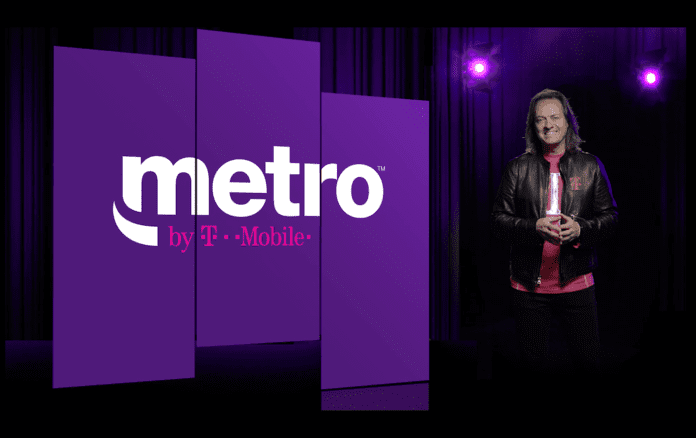Metro PCS becomes Metro by T-Mobile, adds Google One and Amazon Prime perks
T-Mobile US is revamping its MetroPCS brand, trying to broaden its appeal and update customers’ perception both of the brand and of prepaid offerings in general — and tying content and services from Amazon and Google into new plans.
The new Metro by T-Mobile brand will officially launch next month. The highest tier of plans will include Amazon Prime, with its free expedited shipping on Amazon purchases and access to music, movie and TV episodes and original content. T-Mo is also touting its new relationship with Google One for cloud storage and mobile back-up for Android devices.
“This move is more than a new name and some new letterhead — we’re launching a major new campaign a to showcase our Metro business,” said T-Mobile US CEO John Legere in a video on the changes (see below).
“As a category, prepaid suffers from a perception that’s a decade old,” Legere said, saying that T-Mo asked people about their perceptions of prepaid and got answers like “burner phones” and “crappy coverage.”
“The differences between prepaid and postpaid have basically disappeared,” he said, going on to add that “in a lot of ways, this move represents the next logical step on a journey we started over five years ago, when T-Mobile and Metro first came together. … Metro really is T-Mobile.”
He said that Metro has doubled its customer base and distribution network in that time period. Legere said the new unlimited plans for Metro start at $50 per line, with $60 per month plans including the Amazon and Google features. T-Mobile US noted that for all of the Metro by T-Mobile plans, video streams at 480p and that in congested network conditions, customers who use more than 35 GB per month will see reduced speeds until their next payment cycle.
In the video blog on the new offerings, Legere not only called out AT&T and Verizon customers as potential switchers to Metro by T-Mobile, but also those of Boost Mobile — Metro’s major competitor, which T-Mobile US would acquire as part of its proposed acquisition of Sprint.
The @metropcs kind of customer is the kind we built this network for — the kind who uses a lot of data. The @TMobile network has a lot of advantages for those customers and Metro by T-Mobile subscribers get them all! https://t.co/v9jZHWMz9p
— Neville (@NevilleRay) September 24, 2018

